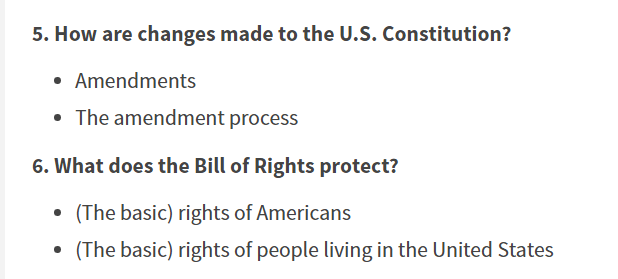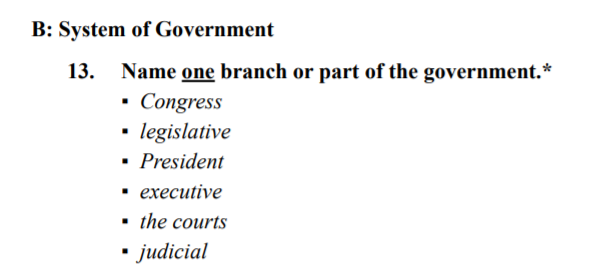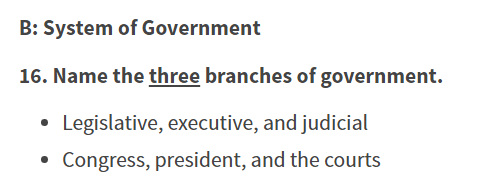
In today's oral argument, 7 of 9 Supreme Court justices used the phrase "illegal alien" to describe individuals currently lacking a lawful immigration status in the US.
A brief thread on the origin of the phrase, whether judges are required to use it, and why they shouldn't.
1/
A brief thread on the origin of the phrase, whether judges are required to use it, and why they shouldn't.
1/
https://twitter.com/ReichlinMelnick/status/1333435277902286851
Many people claim that the phrase "illegal alien" is somehow required by law—that it's the only accurate one.
But the entire Immigration and Nationality Act (and indeed all of Title 8 of the U.S. Code) uses the phrase just six times total—and most of those date back to 1996.
2/
But the entire Immigration and Nationality Act (and indeed all of Title 8 of the U.S. Code) uses the phrase just six times total—and most of those date back to 1996.
2/

Since "illegal alien" isn't a term that comes from the black letter law, is it a phrase with a long history in the courts?
Nope! The first use of the phrase in a federal case came from a 1950 case called Waisboard v. United States, from the following very colorful opening.
3/
Nope! The first use of the phrase in a federal case came from a 1950 case called Waisboard v. United States, from the following very colorful opening.
3/

It took until 1955 for any state case to use the term "illegal alien," and until the early-to-mid 1970s for the phrase to be used more than 10 times in federal cases.
Before then, judges just used the term "alien," and separately noted a person's legal status if relevant.
4/
Before then, judges just used the term "alien," and separately noted a person's legal status if relevant.
4/
So where does the term come from, if not the law on the books or from court cases?
Well, it seems to have arisen naturally in the early 20th century—around the time that borders began tightening.
The first recorded use of the term is from 1926.
5/
theatlantic.com/national/archi…
Well, it seems to have arisen naturally in the early 20th century—around the time that borders began tightening.
The first recorded use of the term is from 1926.
5/
theatlantic.com/national/archi…
But despite the fact that people have had the ability to be present in the US in violation of law since the passage of the first federal immigration laws in the late 19th century, "illegal immigration" and "illegal aliens" didn't really get much attention until the 60s & 70s.
6/
6/

As a result, there's never been one "correct" way of referring to people lacking lawful status. We can see from Google ngrams that the use of various phrases changes over time.
"Undocumented immigrant" is now more popular than "illegal alien" in books, for example.
7/
"Undocumented immigrant" is now more popular than "illegal alien" in books, for example.
7/

In the courts, terminology isn't standard and changes over time.
Cases using "illegal immigrant" or "illegal alien":
1990: 143
2000: 249
2010: 588
2020: 305
Cases using "undocumented immigrant/alien," or "unauthorized immigrant/alien":
1990: 42
2000: 48
2010: 148
2020: 187
8/
Cases using "illegal immigrant" or "illegal alien":
1990: 143
2000: 249
2010: 588
2020: 305
Cases using "undocumented immigrant/alien," or "unauthorized immigrant/alien":
1990: 42
2000: 48
2010: 148
2020: 187
8/
So that brings us back to the Supreme Court. Neither history nor law requires them to use the term "illegal alien" during oral arguments—or even in opinions.
So what to use instead? Well, Justice Kavanaugh uses the term "noncitizen." I like that.
9/
So what to use instead? Well, Justice Kavanaugh uses the term "noncitizen." I like that.
9/
https://twitter.com/ReichlinMelnick/status/1267458924158111747
Since Justices are not required to use any one particular term, they should something which is not inherently stigmatizing or filled with negative connotations.
Same goes for the word "alien"—these days, it means little green men, not noncitizens.
10/ thehill.com/opinion/immigr…
Same goes for the word "alien"—these days, it means little green men, not noncitizens.
10/ thehill.com/opinion/immigr…
Finally, words can be changed! Just a few years ago, Congress passed a law eliminating the words "negro" and "oriental" from the U.S. Code.
We can and should do the same with "alien." But in the meantime, the Court should strive to be better.
/fin theatlantic.com/politics/archi…
We can and should do the same with "alien." But in the meantime, the Court should strive to be better.
/fin theatlantic.com/politics/archi…
• • •
Missing some Tweet in this thread? You can try to
force a refresh













